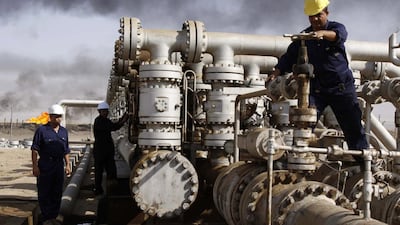The recent steep decline in international oil prices has intensified pressure on Saudi Arabia, the "swing" producer among the world's major oil exporters, to sanction a production cut at Thursday's meeting of the Organisation of the Petroleum Exporting Countries (Opec) in Vienna. Several Opec members, dependent on revenues from oil exports to balance their budgets, are demanding action to stem the current glut of cheaper oil. Iran, supported by Venezuela, is pushing most strongly for action to stabilise oil prices, while maintaining production at its current level.
Tehran’s eagerness to prop up oil prices is partly motivated by the extension of the international talks on Iran’s nuclear programme until next year. As long as a solution continues to elude the negotiators, Iran will be prevented by sanctions from staging a full return to the oil market. In the run-up to the Opec meeting, the Iranians have been actively lobbying the Saudi and Russian governments to bolster oil prices.
Expecting a strong Saudi intervention, however, suggests that some member states have unrealistic expectations regarding Riyadh’s willingness to fix oil prices. With immense wealth funds to draw on, the Saudis may be prepared to wait until lower profit margins take a toll on competitors and the market’s natural equilibrium is restored. In response to calls for a production cut, Ali Al Naimi, Saudi Arabia’s minister of petroleum, has insisted: “We do not set the oil price. The market sets the prices.”
It is no accident that those most actively calling for intervention are governments who have not used the windfall of the high oil revenues to implement economic reform. With the current oversupply of oil, market pressures are revealing shortcomings that cannot be explained away by geopolitical manoeuvring or international sanctions. This is evident in the case of Russia, where the energy sector accounts for two-thirds of export earnings. It is likely that reduced revenue will lead to increasing hardship for its citizens and expose the failure of successive governments to diversify the economy.
It has been suggested that Saudi Arabia’s reluctance to support oil prices has been attributed to a wish to use the “oil weapon”, with US approval, to punish Russia and Iran for their support of the Syrian regime. In reality, while Riyadh certainly has the means to undermine the economies of its rivals, Saudi reluctance to cut production stems from the difficulties of coordinating action with the other producers. Although the Opec nations control around 40 per cent of global oil production, the organisation can only really influence the price if it acts in concert with non-Opec producers.
Aside from the difficulties of enlisting those producers, there is no guarantee that a production cut would slow price falls given that US shale sector production passed nine million barrels of oil a day earlier this month. Rex Tillerson, Exxon Mobil’s chief executive, recently stated that the US can look forward to a “new era of energy abundance”. The US is also now producing enough natural gas to create a surplus for export, with deliveries of gas to Europe expected to start next year, reducing Europe’s dependency on Russia.
In addition to the rapid expansion of shale oil production, the Obama administration is considering whether to lift the ban on crude oil exports imposed in the 1970s. If the ban is removed, the US oil sector could be exporting as much as five million barrels of oil per day by 2020.
US shale producers are also seeking to expand into Asia as the major potential growth market over the next 20 years. While China has struggled to exploit what are probably the largest exploitable shale reserves in the world, the 2009 US-China Shale Gas Resource Initiative paves the way for US investment in extracting hydrocarbons from shale deposits. The US-China joint announcement on climate change signed earlier this month signals that Beijing and Washington see their energy futures as being increasingly interdependent.
These shifts in the balance of power suggest the intense focus of the oil market on the Vienna meeting may be misplaced. Given the need to preserve unity among the Opec members, some kind of compromise is likely to be hammered out. But there is no guarantee that a superficial accord would stabilise oil prices. By stressing market forces, the Saudis may be preparing the ground for absolving themselves of responsibility for further price falls.
Mr Al Naimi’s protestations that Saudi Arabia cannot fix international oil prices should therefore be taken at face value. Years of bountiful oil revenues have fuelled investment in new fields and exploitation of unconventional resources around the world. Ultimately, lower prices will lead to less investment, reduced supplies and a natural correction of the market rate for oil. Regardless of the conclusions reached in Vienna, Riyadh will seek to protect its market share with the acceptance that the resurgence of the US as an energy superpower will not displace Saudi Arabia’s position as the world’s “swing” producer of oil.
Stephen Blackwell is an international politics and security analyst

